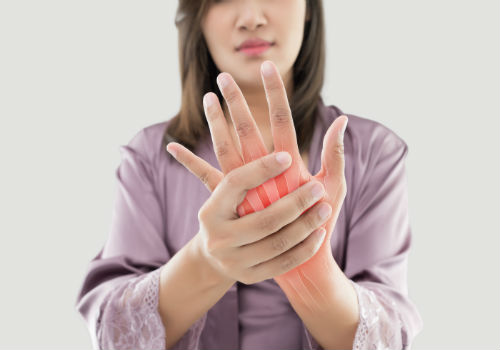Degenerative bone disease occurs when the cartilage between two bones deteriorates. This condition may also affect surrounding joints and is more commonly known as osteoarthritis.

If the cartilage wears down completely, it can result in bone rubbing on bone causing significant discomfort. Degenerative bone disease commonly affects the hips, spine, shoulders, and hands.
Causes of Degenerative Bone Disease
- Age
Bone damage occurs over time, which makes age a big factor when dealing with degenerative bone disease.
- Gender
Women are more likely to get this disease due to genetics and the role female hormones play in protecting cartilage from inflammation. After menopause estrogen levels decrease and women become more at risk from developing degenerative bone disease.
- Repetitive movements
Repetitive movements can cause bones, joints, and discs to wear down over time. Some occupations such as a laborer may have a higher risk of developing degenerative bone disease due to improper lifting techniques.
- Past injuries
Past injuries from a bone breakage and joint damage can also increase your chances of developing degenerative bone disease.
Symptoms of Degenerative Bone Disease
Symptoms for degenerative bone disease generally develop slowly and worsen over time. Your bones and joints may feel pain after or during movement. After waking up or being inactive may cause tenderness and stiffness of the joint and surrounding muscles.
Inflammation may occur around the bone or joint affected. You may hear of feel a grinding sensation when you rotate the joints; an example would be rotating your shoulder by circling your arm above your head. You may even experience a loss of flexibility.
Progression of Degenerative Bone Disease
If left untreated degenerative bone disease continues to worsen. This happens when an affected bone or joint continually experiences stress through daily activities. Giving your body the time to heal and seeking out professional help for degenerative bone disease is very important for your overall health.
Degenerative bone disease is treatable, but not reversible, so it is important to seek help as soon as possible to prevent it from breaking down bones and joints further.

Treatments for Degenerative Bone Disease
An active lifestyle along with other treatments can slow the progression of degenerative bone disease in West Bloomfield, MI; this can improve the stiffness and reduce discomfort in bones and joints.
A chiropractor can show you exercises and stretches to strengthen the muscles near the joints to prevent further damage. Chiropractic alignments may be beneficial in aiding the healing of the joints and muscles throughout the body. This can be used to gently massage the affected areas and bring blood flow to the area to help the healing process and return you to an active, healthy lifestyle.


